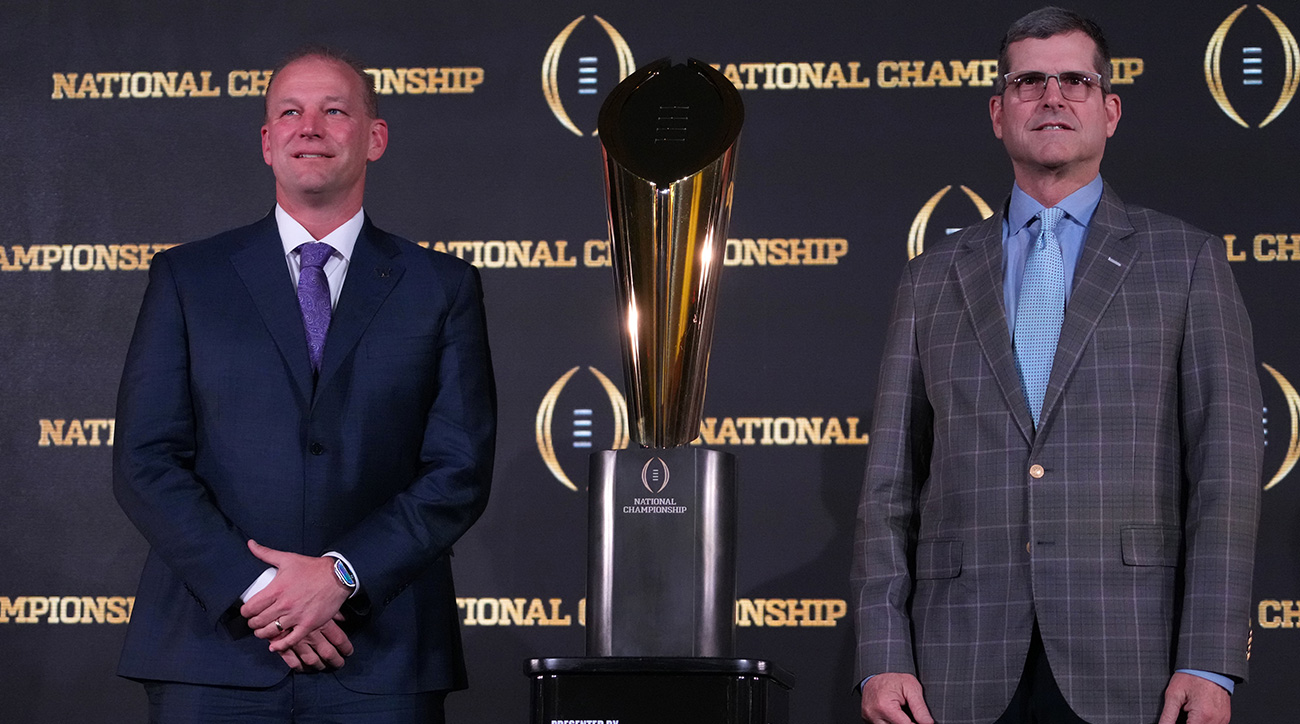Amid Personal Safety Concerns, College Football Execs Punt on Changing Structure of New 12-Team Playoff
In the wake of Florida State being left out of the College Football Playoff, extra security measures were put in place to protect members of the CFP selection committee as well as executive director Bill Hancock, who told reporters threats have ranged from vitriol on social media, to “profanity-laced” emails and phone calls, to direct threats on multiple committee members’ homes or offices, including his own.
“We’ve been in contact with the FBI. Some of it was really unfortunate,” Hancock said Monday. The extra security measures were put in place almost immediately after the field was announced Dec. 2.
Otherwise, the College Football Playoff governing bodies emerged from meetings on the day of the national championship game with little in the way of specifics on the few pressing business issues they discussed. (The governing structure consists of a CFP management committee—10 conference commissioners and Notre Dame’s athletics director—that recommends proposals to the Board of Managers, made up of 11 university presidents and chancellors from each conference as well as Notre Dame.)

The CFP expanded the reimbursement program for athletes’ family travel expenses to all 11 games in the new 12-team Playoff that will debut after the 2024 regular season. The board also accepted a recommendation that for a conference champion to be considered for an automatic qualifying spot it must be part of a conference with at least eight members, closing a potential loophole that would have benefited Oregon State and Washington State as the remaining members of the Pac-12. But the board did not vote, as was expected, on the new balance of automatic conference champion qualifiers to at-large entrants in the new 12-team field. As currently constructed, six conference champions and six at-large teams will qualify in the new format. At the Pac-12’s request, the board did not vote on moving to a so-called five (conference champions) plus seven (at-larges) model.
“I would be shocked if we do not have a five-seven format for this coming Playoff,” Mississippi State president and CFP board chair Mark Keenum said. “I just think that out of respect for our colleague in the Pac-12, they ask for a bit more time for us to consider it. We as a board thought that was a reasonable request and granted that.”
The Pac-12 requested the delay as it continues to resolve legal issues pertaining to Washington State and Oregon State. In November, the management committee recommended unanimously (with the Pac-12 abstaining) to go to the 5+7; all that remains is a formal board vote, which Keenum said he expects to happen within a month. Staying at 6+6 might allow more than one Group of 5 team into the Playoff field in addition to the highest-ranked G5 conference champion, while an additional at-large spot would almost certainly go to a team in the SEC, ACC, Big Ten or Big 12.
The Board also did not vote on whether new power conference members would receive a full share of College Football Playoff revenue until the new Playoff media contract kicks in for the 2026 postseason, and instead sent it back to the commissioners to discuss. If it is passed, it would directly apply to SMU, costing the Mustangs $6 million per year in lost revenue in addition to the distribution share they are forgoing from the ACC when they enter the conference this summer.
The CFP continues to evaluate who will broadcast first-round games when the Playoff expands. The seven quarterfinal, semifinal and championship games will be broadcast by ESPN.
